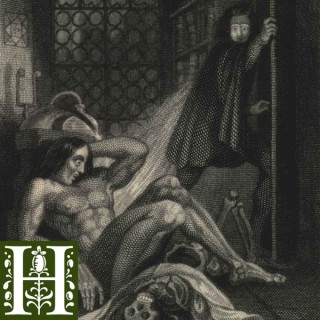Frankenstein: Then and Now
Follow Frankenstein: Then and NowIn celebration of the 200th anniversary of Mary Shelley's novel "Frankenstein: or, The Modern Prometheus," scholars, scientists, writers, and directors discuss the profound issues—ethical, cultural, scientific, and beyond—raised by the novel from its publication in 1818 down to the early 21st centur…
- May 12, 2018 LATEST EPISODE
- infrequent NEW EPISODES
- 44m AVG DURATION
- 10 EPISODES
Latest episodes from Frankenstein: Then and Now

Nick Dear, playwright of "Frankenstein" for the National Theater, discusses the process of adapting Mary Shelley's novel for the stage.

Alan Richardson, professor of English at Boston College, presents on the link between biological scientific developments and Mary Shelley's "Frankenstein."

Robert Mitchell, Marcello Lotti Professor of English at Duke University, presents on the proliferation of the Frankenstein story through modern cultural references.

Maisha Wester, associate professor of African American studies at Indiana University, Bloomington, presents on the notions of slavery and revolution in Britain and the British colonies in "Frankenstein."

Alan Bewell, professor of English at the University of Toronto, discusses the relationship between freedom and mobility in "Frankenstein."

Henry T. Greeley, Director of the Center for Law and Biosciences at Stanford University, presents on lessons that can be learned from "Frankenstein" in guiding scientific advances that affect humanity.

Jennifer Doudna, professor of chemistry at the University of California, Berkeley, presents about the developments of CRISPR and gene editing and how the myth of "Frankenstein" affects advancements in the field.

David J. Skal, film historian and analyst, presents on "Frankenstein's" adaptation on screen over the years.

Susan Wolfson, professor of English at Princeton University, discusses Mary Shelley's introduction to the first edition of "Frankenstien" that discusses the story's origin.

Gillen D'Arcy Wood, professor of English at the University of Illinois, Urbana-Champaign, presents on the representation of climate change in Mary Shelley's "Frankenstein."








